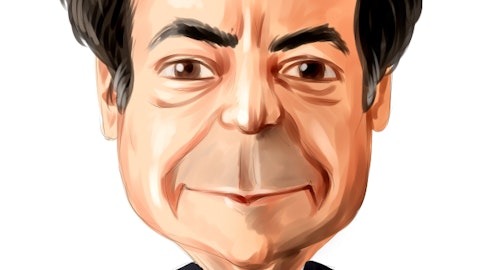Zuckerberg’s Loan Gives New Meaning To The 1% (Bloomberg)
Billionaire Mark Zuckerberg is giving new meaning to the term “the one percent.” The Facebook Inc. (FB) founder refinanced a $5.95 million mortgage on his Palo Alto, California, home with a 30-year adjustable-rate loan starting at 1.05 percent, according to public records for the property. While almost all lending rates have reached historical lows this year, the borrowing costs available to high-net-worth individuals are even lower if the person is willing to bear the risk of monthly interest rate adjustments, said Greg McBride, senior financial analyst with Bankrate Inc., a North Palm Beach, Florida-based firm that tracks interest rates. Large increases are unlikely anytime soon with the Federal Reserve signaling it will keep interest rates near zero for at least two years.
JPMorgan loses $4.4bn (iOL)
Losses from botched derivatives trades at JPMorgan hit $4.4 billion in the second quarter, an earnings report revealed on Friday. The losses, which were linked to a Britain-based trading group that included a man dubbed “the London Whale,” were originally predicted to have cost the firm at least $2 billion.
Privium Fund Management and Vistra create hedge fund seeding structure for emerging managers (HedgeFundsReview)
Privium Fund Management and Vistra Fund Services have launched a Cayman-based fund structure for emerging hedge fund managers. The seeding fund targets talent in Asia and the Middle East. Emerging hedge fund investor Privium Fund Management and Vistra Fund Services have joined forces to launch an umbrella fund structure targeting managers focusing on opportunities in Asia. Privium was set up in 2008. Its Privium Selection Fund, a Luxembourg-domiciled structure with $30 million invested in three managers, was also established in partnership with Vistra.
Shanghai Hedge Fund Association is officially launched (Opalesque)
As the Chinese government formally allowed foreign hedge funds to tap into local wealthy individual investors for funds to invest overseas, the Shanghai Hedge Fund Association, or SHFA, was officially launched over the weekend with the aim of promoting hedge funds operating in Shanghai. In an emailed statement, Clark Song, Mananging Director at SHFA said that the Shanghai hedge fund network would be transformed into an education and communications organization to enable hedge fund firms in the city to participate in public policy discourse and share best practices. It is also a networking group for hedge fund firms and investors.
Cayman court ruling upholds rights of hedge fund in case involving a side letter (HedgeFundsReview)
A Cayman court decision outlines the position of hedge fund investors when using an intermediary. It also shows hedge funds they have other options when hit with redemption requests, says Ogier. A Cayman Islands court judgement has highlighted issues involving the rights of an investor using a nominee when a restructuring occurs and is particularly interesting given some fear redemptions on the scale of 2008 and 2009 if the eurozone crisis causes a credit squeeze, says law firm Ogier.
GLG Forms Asia Equities Team Co-Led By Ex-GIC Manager (Bloomberg)
GLG Partners Inc., a unit of the world’s largest publicly traded hedge fund manager, formed a long-short equities team in Asia co-headed by a former fund manager at Singapore’s sovereign wealth fund, seeking opportunities in the region’s stock market. The team based in Hong Kong will be led by David Mercurio, who joined the London-based unit of Man Group Plc (EMG) as the head of Asia equity and co-head of its global equity strategies from Government of Singapore Investment Corp. in September, according to an e-mailed statement from GLG. Ben Freischmidt, former co- founder of Singapore-based hedge fund LionRock Capital Pte, will also head the team, according to the statement.
A chat with hedge fund director and Short Hills writer Stephen L. Weiss (NJ)
For those who get queasy at the thought of balancing a modest checkbook, books on major deals and the people behind them don’t beckon the way novels do. But Short Hills resident Stephen L. Weiss’ second non-fiction book, “The Big Win: Learning from the Legends to Become a More Successful Investor” (John Wiley & Sons, Inc., $29.95, 227 pages) is a surprisingly enjoyable read.
Surveys Give Big Investors an Early View From Analysts (NYTimes)
They are supposed to be among Wall Street’s most closely guarded secrets: changes in research analysts’ views, up or down, of a company’s prospects. But some of the nation’s biggest brokerage firms appear to be giving a handful of top hedge funds an early peek at these sentiments — allowing them to trade on the information before other investors get the word. The signals come from questionnaires that analysts answer and submit electronically, either monthly or quarterly, to some of their firms’ largest hedge fund clients. Chief among the questions posed to the analysts are those about possible earnings surprises at companies they follow.
Pangolin’s exposures continue to rise as its main fund ended June up +3.41 (+14.88 YTD) (Opalesque)
The markets in which Singapore-based hedge fund manager Pangolin Investment Management are invested continued to attract some buying interest last in June and that brought a positive return of 3.41% (a gain of 14.88% year to date) to its main fund, the Pangolin Asia Fund. Pangolin Director James Hay said, “I’m happy to say that our largest positions remain reasonably cheap. We estimate the portfolio’s 2012 PE to be around 9X with a dividend yield of 4.5% and an ROE of 25%. Furthermore, most of our companies have cash rich balance sheets. Our aim is to find investments that lower the average PE while simultaneously raising the fund’s yield and ROE. Simple really.”
Investors query effect of Libor manipulation (FT)
Amid all the hullabaloo over Libor (the London Interbank Offered Rate), investors are asking what it means to them, whether they were affected and if so, how? Interest rate swaps, Libor-referenced performance fees, even Libor-based mortgages – a huge range of products are affected by the benchmark interest rate, so naturally investors want to put figures on it. Unfortunately, as blogger Zero Hedge’s twitter feed put it, “the thing about attempts to quantify the damages from Libor manipulation is that nobody has the faintest clue”.
Martin: Hedging around (OurMidland)
Many of us just don’t have enough cash or financial proficiency to invest in a hedge fund. But we might have enough money and knowledge to set up a fund to plant a hedge. Both of these funds will give you returns on your investment, but planting a hedge is less risky than investing in a hedge fund. So if you are interested in a plant hedge continue reading. If you are interested in a hedge fund grab a copy of Barron’s or the Wall Street Journal. Plants placed in rows or groups to form a dense growth habit are called hedges. Hedges can be thick, sheared, clipped and tidy to form a very formal style of planting. Formal hedges will usually use one species of plants. Hedges also can be less dense and natural looking to create a more informal look. You can use many species of plants and place plants in grouping for informal hedges.
ETFs unlikely to soar in Asia (FT)
The exchange traded fund market in Asia will not follow the same evolutionary path as the US and European markets, according to Mark McCombe, chairman of BlackRock’s Asia Pacific business. The developed ETF markets “provide pretty much everything people need”, he said in an interview with FTfm. Asian institutions, such as hedge fund managers, are more likely to use established international products that offer deeper liquidity and a low tracking error. “No one will come and say they would prefer to buy a local product; it just doesn’t work that way because the majority of flows in Asia remain institutional,” said Mr McCombe.
Own company stock in your 401(k)? Sell it! (MarketWatch)
Finally — July 2012 has arrived! Employees all over America will get the sobering news that there really are fees being siphoned out of their 401(k) accounts and the amounts, will hopefully generate “shock and awe.” Fees will now begin to compress and over time, employers will begin offering low cost index funds to employees, and there will be a mass migration out of expensive actively managed funds and into lower cost funds or target date funds. Hopefully, this higher level of disclosure and transparency will save American workers literally billions in future fees.
Hedge Funds Bet Right Before Longest Winning Streak: Commodities (Bloomberg)
Hedge funds boosted their bullish commodity bets above 1 million contracts as mounting speculation that China will take more steps to boost growth spurred the longest rally in prices since February. Speculators raised their net-long positions across 18 U.S. futures and options by 8.9 percent to 1.05 million contracts in the week ended July 10, Commodity Futures Trading Commission data show. That’s the highest since April 3. Wagers on a wheat rally reached a record. The Standard & Poor’s GSCI Spot Index of 24 raw materials climbed for a third consecutive week, jumping 10 percent in the longest winning streak since Feb. 24.
Downgrade Anniversary Shows Investors Gained Buying U.S. (Bloomberg)
When Standard & Poor’s downgraded the U.S. government’s credit rating in August, predictions of serious fallout soon followed. Republican presidential candidate Mitt Romney described it as a “meltdown” reminiscent of the economic crises of Jimmy Carter’s presidency. He warned of higher long-term interest rates and damage to foreign investors’ confidence in the U.S. U.S. House Budget Committee Chairman Paul Ryan said the government’s loss of its AAA rating would raise the cost of mortgages and car loans. Mohamed El-Erian, chief executive officer of Pacific Investment Management Co., said over time the standing of the dollar and U.S. financial markets would erode and credit costs rise “for virtually all American borrowers.”
Japan Advisory may have led insider trading (Yomiuri)
The Financial Services Agency has begun a full-scale investigation into an insider trading scandal in which Japan Advisory LLC, an investment advisory firm, is alleged to have been involved. Japan Advisory is suspected to have played a leading role in questionable deals over public offerings of stocks by listed companies for the purpose of increasing capital. The stock deals in question are said to involve a major U.S. hedge fund. According to the Securities and Exchange Surveillance Commission and other sources, Japan Advisory has close business ties with the fund.
Bond rally will gather steam (DNAIndia)
Bond yields fell by around 5 bps last week on the back of a sharp fall in 5-year Overnight Index Swaps (OIS) yields, which dropped 21 bps on week to close at 6.97% levels, the lowest close since September 2011. The rally in 5-year OIS yields is mainly due to record low borrowing costs across markets globally. Yields from Germany to Japan closed at all time lows last week on worries of economic growth. …Hedge fund managers and proprietary traders in banks based outside India use the OIS yield curve for positioning in Indian interest rates and the falling numbers suggest that their outlook on Indian rates is positive. Global fund manager views on rates are largely determined by both global and domestic factors.
Understanding TJX’s Fair Valuation (SeekingAlpha)
In the past year, TJX Companies (TJX) (which includes T.J Maxx, HomeGoods, and Marshalls) defied macro trends and grew at a remarkably stable pace. The stock now trades at $43.88, which marks a 58% increase since July 2011. As the stock pushed higher, hedge funds became enamored with TJX and now hold a significant portion of the stock. We saw the hedge fund groupthink as a potential reason to short TJX. We reasoned that if the sentiment for TJX began to change, the same hedge fund groupthink that drove the stock price upwards could act as a catalyst to rapidly move the stock downward if funds began to exit TJX en masse.
Understanding tail-risk hedges and funds (Opalesque)
Conversations surrounding tail-risk started gaining more frequency with both investors and funds starting with the collapse of Long Term Capital Management as a result of the 1998 Russian debt default crisis. Since then, rolling crises from the 2007 “quant” crisis, to the 2008 global financial meltdown and most recently Grexit have made tail-risk hedging a hot topic. New funds, books, papers, and summits are springing up throughout the financial universe discussing tail-risk, whether it can be effectively hedged and how investors can fund the experiment. In this series, Opalesque will examine some of the more common tail-risk hedges, the funds in this space and what investors can expect.
Soros’ plot to stack states’ courts with leftist judges exposed (Examiner)
In the wake of two controversial U.S. Supreme Court decisions — Obamacare and the Arizona immigration law — in which a so-called conservative Chief Justice joined left-wing Justices in his ruling, multi-billionaire and far-left icon George Soros is financing a almost $50 million campaign to reshape America’s state and federal courts, according to several legal and political science scholars. The first step in the Soros-backed scheme is to keep conservative judges off the courts by taking judicial selection decisions away from American citizens and handing them over to individual state “merit” boards stacked with legal special interests, according to conservative political consultant and attorney Michael Baker.
Beware China but Not Commodities: Marc Faber (CNBC)
The clouds are gathering over China’s economy, but a silver lining might still be found in the commodities markets, Marc Faber, author of “The Gloom, Boom & Doom Report,” told CNBC. According to the market analyst known for his pessimistic economic forecasts, there are still opportunities for investment in commodities despite recent volatility, following diminishing demand from China, the world’s biggest consumer of commodities like copper and zinc.
The Selling of American Democracy: The Perfect Storm (Economonitor)
Who’s buying our democracy? Wall Street financiers, the Koch brothers, and casino magnates Sheldon Adelson and Steve Wynn. And they’re doing much of it in secret. It’s a perfect storm: The greatest concentration of wealth in more than a century — courtesy “trickle-down” economics, Reagan and Bush tax cuts, and the demise of organized labor.
Billionaire Carl Icahn’s Most Recent Targets (SeekingAlpha)
While many Wall Streeters are taking things slow in the summer, Carl Icahn has been into some nasty battles. Last Wednesday, it was reported that MHR Capital – run by Mark Rachesky, a former employee of Icahn’s – has added to its stake in Navistar International Corporation (NAV) after overtaking Icahn as the largest shareholder of Navistar last month. Icahn has since responded by upping his ownership in Navistar to 13.2%, now at over 9 million shares.






